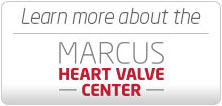If your cardiologist suspects you have a heart condition, there is a noninvasive procedure that allows him or her to determine exactly how your heart is – or isn't – working. "An echocardiogram is a noninvasive heart test, meaning there is no radiation or surgery involved," says cardiologist Randy Martin, M.D. "It is the most widely utilized imaging test in cardiology today, aside from the X-ray."
Putting the “echo” in echocardiogram
You already know what an echo is – when sound waves are reflected after a noise is made. That’s exactly what an echocardiogram is – it is a sonar test that emits high-frequency sound waves into the body. These sound waves bounce off substances or structures like your heart. The beams are then focused, and an image is created, helping doctors determine exactly how the heart is functioning.
The test gives cardiologists data about the size and pumping action of the heart. It can also detect complications, such as valve problems, infection, heart attack and even tumors. An echocardiogram can be performed as either an outpatient or inpatient procedure. Echocardiograms are sometimes utilized in the intensive care unit (ICU) and in the operating room to guide surgeons.
Detecting potential heart complications
"The vast majority of echocardiograms are two-dimensional transthoracic, meaning they pick up echoes across the chest," Dr. Martin says. "We can also perform Doppler echocardiography, which uses the same sound waves to measure the direction and velocity of blood flow in the heart. The test can help us determine the narrowness of blood vessels or detect aortic regurgitation, where a valve leaks blood back into the heart.
"By combining the two tests, we can determine the size, shape and structure of your heart and how severely your valves are narrowed or leaking." An echocardiogram is a standard and useful test when performed and interpreted properly. "It can tell us just about everything that is going on in your heart as well as in your major blood vessels," he says.
"So if your physician tells you that you need an echocardiogram, there is nothing to fear – it can only help us determine the treatment – if any – you need."
